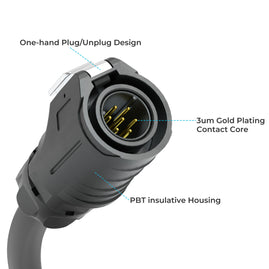In the intricate tapestry of human morality, the concept of sin casts a shadow—a complex interplay of actions, intentions, and consequences that shape our ethical landscape. “Beyond the Shadows: A Spectrum of Sins in the Human Experience” beckons us to delve into the nuanced gradations of moral transgressions, acknowledging that the journey through the human experience is marked by a diverse types of sins. In this exploration, we navigate through the shades of wrongdoing, recognizing the intricacies that define the spectrum of sins.
Sins of Commission: Unveiling Actions in the Light:
Sins of commission stand as visible markers on the moral spectrum, representing deliberate actions that violate ethical principles. These transgressions, whether manifested through dishonesty, theft, or harm to others, cast a palpable shadow on one’s moral character. The recognition of sins of commission urges individuals to confront their actions, fostering accountability and a commitment to ethical growth.
Sins of Omission: Shadows in the Silence:
In the quieter corners of the moral spectrum, sins of omission linger—a shadow born from neglecting one’s moral responsibilities. This type of sin arises when individuals fail to act in situations that demand ethical intervention. The shadows of omission remind us that inaction, too, can bear moral weight, necessitating a vigilant awareness of our obligations to others and society.
Venial Sins: Ethical Echoes in the Background:
Venial sins, characterized by their subtlety, occupy a space on the moral spectrum that is often overshadowed by more grave transgressions. These minor lapses, though not severing one from divine grace, contribute to the overall ethical landscape. Acknowledging venial sins emphasizes the importance of continuous self-reflection and the cultivation of virtues in the everyday journey.
Mortal Sins: Darkening the Moral Horizon:
At the darker end of the moral spectrum lie mortal sins—a category marked by deliberate and severe violations of ethical principles. These transgressions cast a profound shadow on the individual’s spiritual standing, necessitating repentance and reconciliation. Mortal sins underscore the gravity of ethical decision-making and the need for intentional efforts to avoid actions that sever one from a state of grace.
Sins of the Heart: Shadows in the Inner Sanctum:
Sins of the heart delve into the internal landscape, where intentions and thoughts take center stage. Envy, pride, and malevolent thoughts cast shadows within, influencing one’s moral compass. Recognizing and addressing sins of the heart require a deep dive into the inner sanctum of personal motivations, urging individuals to cultivate virtues that counteract the shadows of negativity.
Social Sins: Shadows Across the Collective:
Extending beyond individual actions, social sins cast shadows across the collective human experience. Discrimination, inequality, and systemic injustices contribute to the darker shades of the moral spectrum. Confronting social sins demands a collective commitment to dismantling structures that perpetuate harm and fostering a more just and inclusive society.
Conclusion:
“Beyond the Shadows: A Spectrum of Sins in the Human Experience” invites us to confront the complexities of moral decision-making. Recognizing the diverse array of sins—from visible transgressions to the subtle shadows within—empowers individuals to navigate the moral spectrum with awareness and intentionality. As we acknowledge the shades of wrongdoing, we open the door to ethical growth, collective accountability, and the pursuit of a more enlightened and compassionate human experience.










Comments